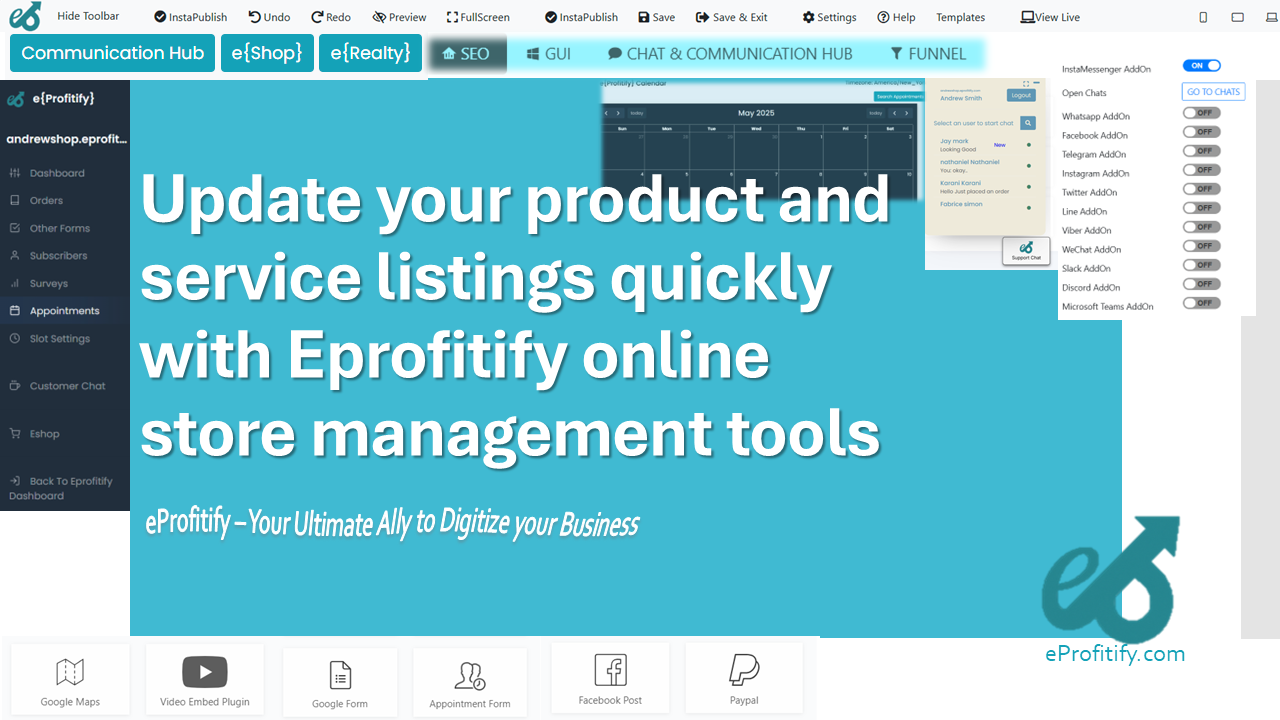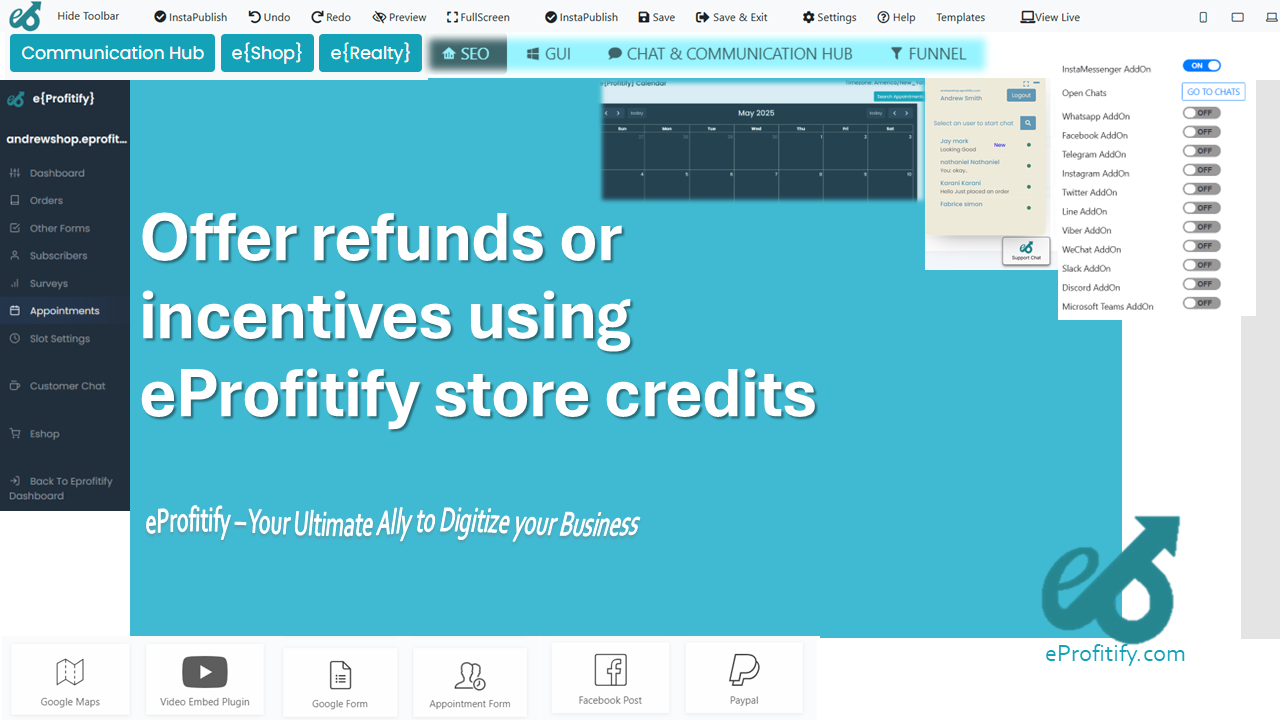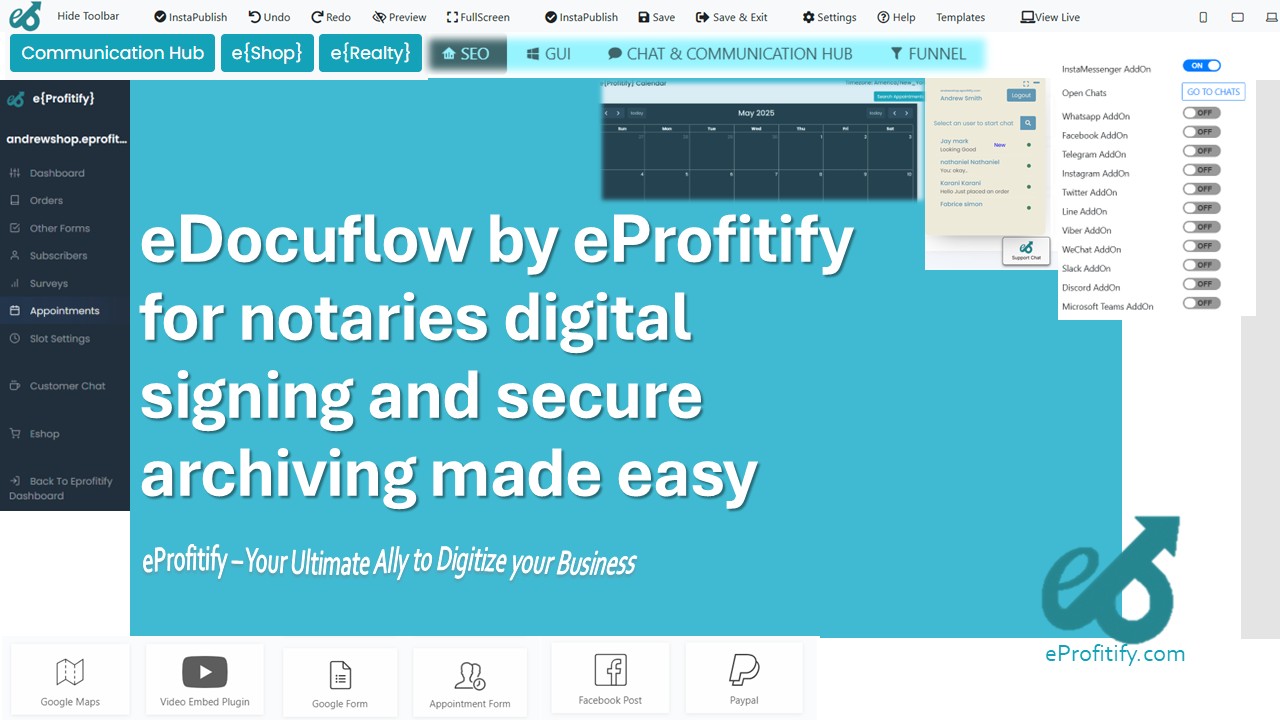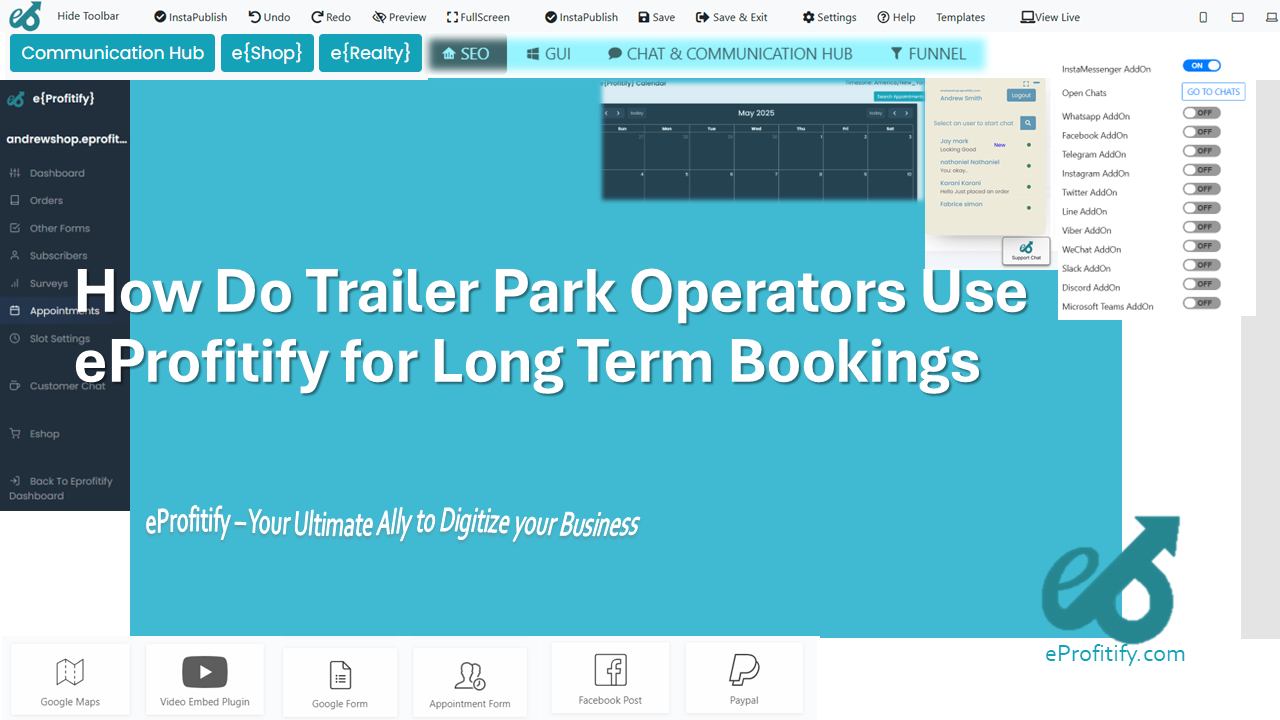Logistics companies handle bulk carrier onboarding digitally with eDocuflow by eProfitify
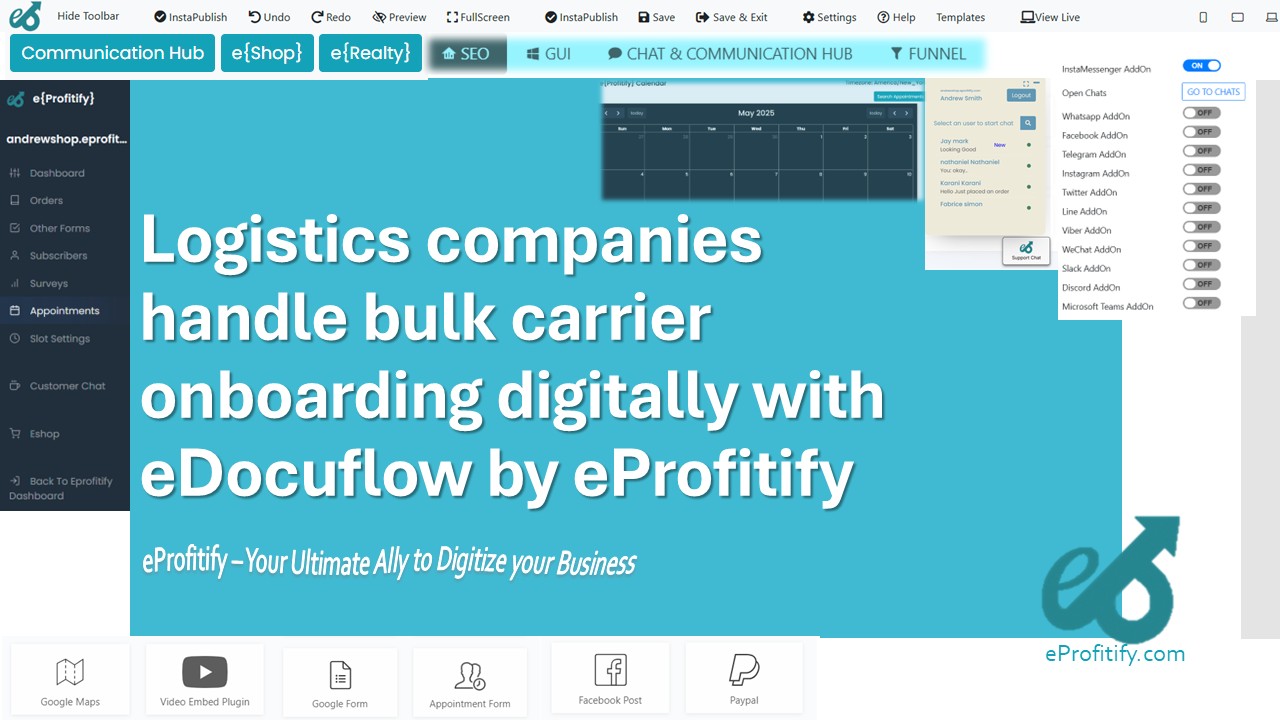
Schedule a LIVE Zoom call with an eProfitify Expert.
The logistics industry is a cornerstone of global trade, responsible for the efficient movement of goods across vast networks. Bulk carrier onboarding—a critical process for logistics companies—involves managing complex documentation, compliance checks, and communication between multiple stakeholders. Traditional methods, reliant on manual processes and paper-based workflows, often lead to delays, errors, and inefficiencies. eProfitify’s eDocuflow addresses these challenges by offering a digital solution tailored for logistics companies to streamline bulk carrier onboarding. This platform leverages automation, customization, and secure collaboration to transform how logistics firms manage documentation, ensuring compliance, accuracy, and operational efficiency.
Challenges in Traditional Bulk Carrier Onboarding
Bulk carrier onboarding requires meticulous attention to detail. Logistics companies must verify carrier credentials, negotiate contracts, ensure compliance with regional and international regulations, and coordinate with shippers, ports, and regulatory bodies. Manual processes, such as email exchanges, physical document signing, and fragmented data entry, create bottlenecks. Misplaced paperwork, version control issues, and delays in approvals often lead to missed deadlines, financial penalties, and strained partnerships. Additionally, the lack of real-time visibility into document status complicates decision-making. These inefficiencies highlight the need for a centralized, automated system like eDocuflow to modernize workflows.
How eDocuflow Digitizes Bulk Carrier Onboarding
eDocuflow, a core component of eProfitify’s suite, is a customized document generator designed to simplify document-intensive processes. For logistics companies, the platform offers tools to automate workflows, standardize templates, and ensure compliance. Here’s how it transforms bulk carrier onboarding:
1. Automated Document Generation and Workflows
eDocuflow eliminates manual data entry by automating the creation of essential documents such as contracts, bills of lading, insurance certificates, and compliance forms. Users can set up predefined workflows that route documents to relevant stakeholders for reviews, approvals, or signatures. For example, a carrier’s safety certification can be automatically validated against regulatory databases, and contracts can be sent to legal teams for vetting without human intervention. This reduces processing time from days to hours and minimizes errors caused by manual handling.
2. Customizable Templates
Logistics companies operate across regions with varying regulatory requirements. eDocuflow allows firms to create customizable templates tailored to specific jurisdictions or carrier types. Whether onboarding a freight forwarder in Asia or a shipping line in Europe, companies can adapt templates to include region-specific clauses, compliance checklists, or language preferences. This flexibility ensures consistency while accommodating local nuances, reducing the risk of non-compliance.
3. Real-Time Collaboration and Tracking
The platform’s collaboration tools enable stakeholders to work on documents simultaneously. Port authorities, carriers, and internal teams can leave comments, request revisions, or approve documents within a unified interface. Real-time tracking provides visibility into each document’s status, such as pending approvals or completed sign-offs. Logistics managers gain a dashboard view of all onboarding processes, enabling proactive resolution of delays. For instance, if a carrier’s insurance documentation is pending, the system sends automated reminders to expedite submissions.
4. Secure Document Storage and Compliance Management
eDocuflow integrates secure cloud storage to centralize all onboarding-related documents. Authorized users can access files from anywhere, ensuring continuity in operations. The platform also includes compliance management features, such as automated alerts for expiring certifications (e.g., ISO standards or environmental permits) and audit trails that log every action taken on a document. This simplifies regulatory audits and ensures accountability.
5. Integration with Existing Systems
Logistics companies often use enterprise resource planning (ERP) software, customer relationship management (CRM) tools, or supply chain management systems. eDocuflow seamlessly integrates with these platforms, enabling data synchronization. For example, carrier contact details from the CRM can auto-populate onboarding forms, or contract dates can sync with the ERP to trigger invoice generation. This interoperability eliminates silos and enhances cross-functional efficiency.
6. Digital Signatures and Authentication
eDocuflow supports legally binding digital signatures, accelerating the approval process. Carriers and logistics teams can sign documents remotely, reducing dependency on physical meetings or couriers. Multi-factor authentication and encryption ensure that sensitive data, such as carrier bank details or contractual terms, remain secure during transmission and storage.
Benefits of eDocuflow for Logistics Companies
By adopting eDocuflow, logistics firms unlock several advantages:
- Faster Onboarding Cycles: Automation reduces processing time, enabling quicker activation of carriers and minimizing revenue leakage from delays.
- Cost Savings: Reduced paperwork, postage, and manual labor lower operational costs.
- Enhanced Accuracy: Predefined templates and automated validation minimize errors in critical documents.
- Improved Compliance: Real-time updates on regulatory changes and automated audits reduce legal risks.
- Scalability: The platform accommodates growing volumes of carriers and transactions without additional administrative burden.
Conclusion
eProfitify’s eDocuflow revolutionizes bulk carrier onboarding by replacing fragmented, manual processes with a cohesive digital framework. Its automation, customization, and compliance features empower logistics companies to operate with agility and precision in a competitive global market. By centralizing documentation, enhancing collaboration, and ensuring regulatory adherence, eDocuflow positions logistics firms to build stronger carrier relationships, reduce operational friction, and focus on strategic growth. As the industry continues to evolve, tools like eDocuflow will remain indispensable for organizations aiming to thrive in the digital age.



